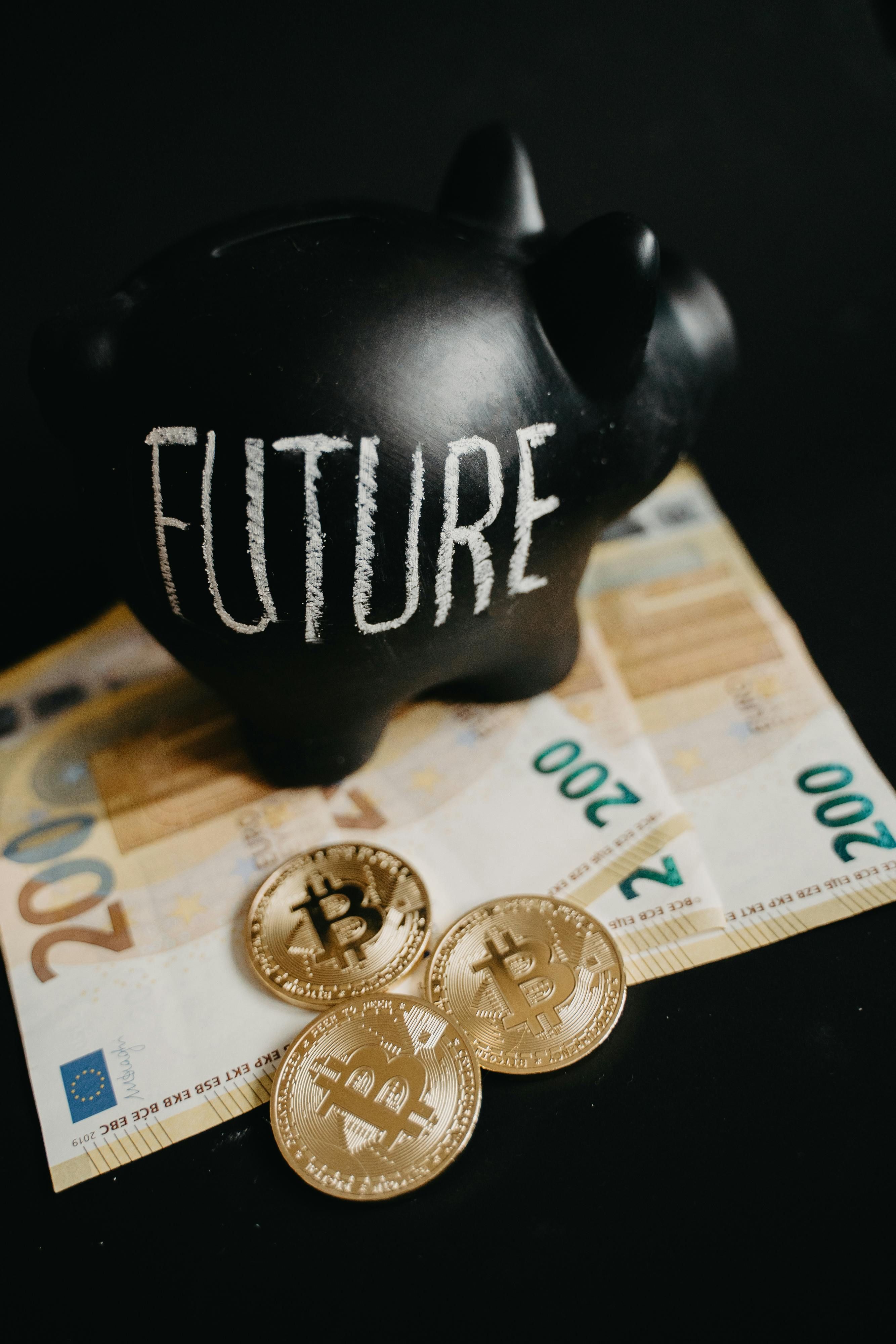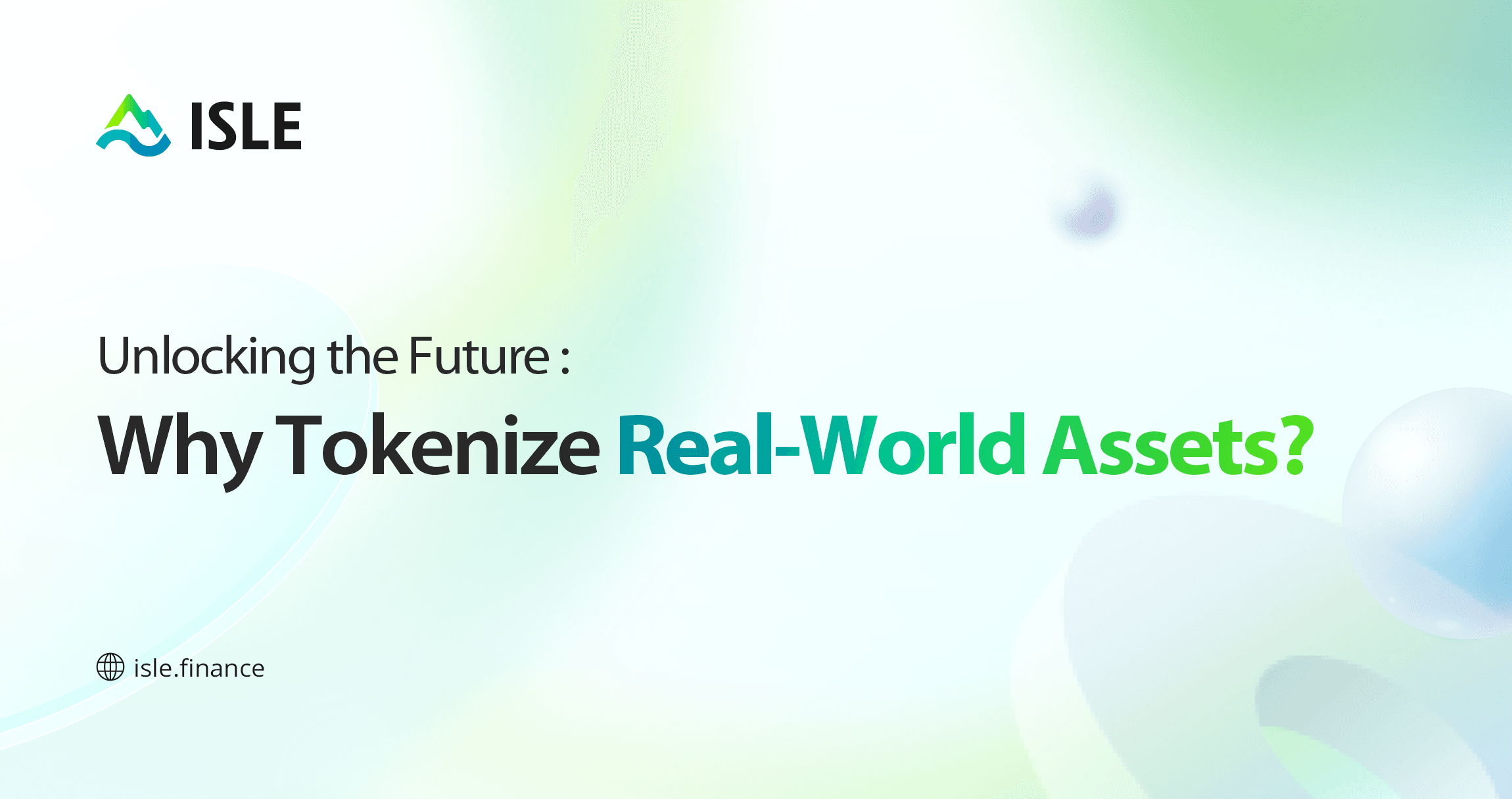

The financial world is on the brink of a major transformation, driven by the innovative technology of blockchain and the concept of tokenizing real-world assets (RWAs). This trend has garnered significant attention from industry leaders and financial institutions, with
Larry Fink, CEO of BlackRock, recently stating, "Tokenization is the future of finance."
But what exactly does tokenization entail, and why is it considered a game-changer? In this blog, we delve into the reasons behind the push for asset tokenization, its benefits, and the future trends shaping this revolutionary approach.
The Background: What is Tokenization?
Tokenization refers to the process of converting physical or tangible assets into digital tokens on a blockchain. These tokens represent ownership or a share of the asset and can be traded or transferred on digital platforms.
Real-world assets that can be tokenized include real estate, precious metals, art, commodities, and even financial instruments like stocks, bonds and invoices (accounts receivable).
The essence of tokenization is to create a secure, efficient, and transparent method of managing and exchanging asset ownership.
Why Tokenize Real-World Assets?
- Enhanced Liquidity: One of the primary reasons for tokenizing RWAs is the significant improvement in liquidity. Traditional assets often suffer from illiquidity, meaning they cannot be easily sold or exchanged for cash without a substantial loss in value. Tokenization breaks down these assets into smaller, tradeable units, making it easier for investors to buy and sell fractions of the asset. This increased liquidity attracts a broader range of investors, enhancing market participation and capital flow.
- Increased Accessibility: Tokenization democratizes access to investment opportunities. Traditionally, investments in assets like real estate or fine art were limited to high-net-worth individuals or institutional investors due to the high capital requirements. By tokenizing these assets, smaller investors can now purchase fractions, allowing for a more inclusive investment landscape. This inclusivity can lead to a more diversified investor base and greater market stability.
- Transparency and Security: Blockchain technology, the backbone of tokenization, is inherently transparent and secure. Each transaction is recorded on a decentralized ledger, ensuring that all parties have access to the same information. This transparency reduces the risk of fraud and enhances trust among investors. Additionally, blockchain's security features protect against tampering and unauthorized access, ensuring the integrity of the asset and its ownership records.
- Efficiency and Cost-Effectiveness: Traditional asset management and transfer processes often involve multiple intermediaries, leading to increased costs and delays. Tokenization streamlines these processes by automating transactions through smart contracts, which are self-executing contracts with the terms directly written into code. This automation reduces the need for intermediaries, lowers transaction costs, and accelerates the transfer process, making it more efficient and cost-effective.
The Potential of Tokenization
The potential of tokenization extends beyond the immediate benefits of liquidity, accessibility, transparency, and efficiency. It also paves the way for innovative financial products and services. For instance, tokenized assets can be used as collateral for loans, enabling new forms of decentralized finance (DeFi) applications. Additionally, tokenization can facilitate fractional ownership in traditionally illiquid markets, such as real estate, allowing for more diversified investment portfolios.
Future Trends in Asset Tokenization
Integration with Decentralized Finance (DeFi)
The integration of tokenized assets with DeFi platforms is poised to revolutionize the financial industry. DeFi platforms leverage blockchain technology to offer financial services without intermediaries, such as banks or brokers. By incorporating tokenized RWAs, DeFi can provide new lending, borrowing, and trading opportunities, further enhancing the liquidity and utility of these assets.
Regulatory Developments
As tokenization gains traction, regulatory frameworks are evolving to accommodate this new asset class. Governments and financial regulators are working to create clear guidelines and standards to ensure the legality and security of tokenized assets. These regulatory developments will play a crucial role in fostering trust and adoption among investors and institutions.
Increased Institutional Adoption
Institutional investors are beginning to recognize the benefits of tokenization and are exploring ways to integrate it into their portfolios. The involvement of major financial institutions like JPMorgan and BlackRock in tokenization projects signals a growing acceptance and confidence in this technology. As more institutions adopt tokenization, it will likely lead to greater market stability and growth.
Technological Advancements
Continued advancements in blockchain technology will further enhance the capabilities and applications of tokenization. Innovations such as interoperability between different blockchain networks, improved scalability, and enhanced security features will make tokenization more efficient and widely accessible.
Tokenizing real-world assets is not just a trend but a transformative force in the financial industry. By enhancing liquidity, increasing accessibility, ensuring transparency, and improving efficiency, tokenization has the potential to redefine how we manage and invest in assets. As regulatory frameworks evolve and technological advancements continue, the integration of tokenized assets into mainstream finance is becoming increasingly feasible. Embracing this innovation, as Larry Fink suggests, could indeed be the future of finance, unlocking new opportunities and creating a more resilient and inclusive financial ecosystem.
Isle Finance, a pioneering RWA lending protocol, aims to address the liquidity challenges faced by supply chain enterprises, fostering a resilient supply chain ecosystem. By connecting with high-credit supply chain buyers and implementing a comprehensive RWA verification process, Isle Finance ensures the authenticity and quality of underlying assets, significantly enhancing security for liquidity providers.
Stay tuned as we continue to explore and innovate in the exciting world of real-world assets(RWA) tokenization.